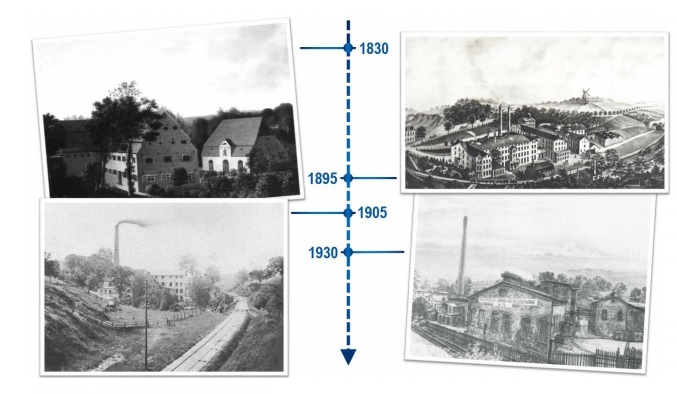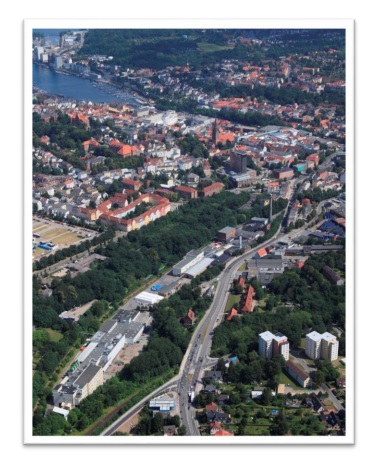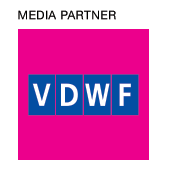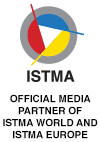325 years of paper \"Made in Flensburg\"
27.05.2021
The Mitsubishi HiTec Paper mill in Flensburg is marking its 325th anniversary this year. Founded by Hinrich Gultzau in 1696 at “Mühlenstrom” outside the city gates, it stands today for the production of high quality thermal, inkjet and barrier papers for flexible packaging. Coated speciality papers from Flensburg are in demand all over the world.
325 years ago: A Papermaker comes to Flensburg
In 1696, the Mecklenburg papermaker Hinrich Gultzau came to Flensburg. His ambitious plan was to build a paper mill. Back then, the city was still struggling to recover from the aftermath of the Thirty Years' War. Papermaking also suffered severe setbacks during wartime, while demand continued to grow. This meant that towards the end of the 17th century paper was a scarce, valuable commodity.
The most important condition for building a paper mill 325 years ago was a suitable watercourse with a corresponding natural gradient. At the gates of the city, on the “Mühlenstrom”, Gultzau found a suitable piece of land. After receiving official approval, he was allowed to set up a paper mill in front of the red gate in Hennings Lundt and to live there. The foundation stone for today's paper mill in Flensburg was laid.
Industrialization ... Specialization ... Flexibility
In the 19th century, industrial paper production took off at a rapid pace. In the first half of the 19th century, all processes, which had up to that point been carried out by hand, were mechanized. In the second half, new raw materials began to be produced in special pulp factories. In 1848, the first paper machine was installed at the current location in Flensburg. In 1954, a paper machine for the production of hygiene papers was put into operation and in 1970 the production of giroform® carbonless papers began. In the early 1990s, after the license agreement with Mitsubishi Paper Mills Ltd. for the production of thermal papers was signed, the production of thermoscript® thermal papers started. The first application was paper for fax machines, which was the communication medium of choice at the time.
In the 1990s and 2000s, investments were made in new high-tech coating processes for the finishing of speciality papers. Specialization and increased flexibility of the modernized production facilities opened the doors for new applications and new markets, for example, durable thermal paper with a topcoat for account statements, thermal paper with forgery-proof security features for admission tickets and lottery tickets, or special thermal paper for the ever-growing label sector. As a result of new technologies, a new product segment was created in Flensburg in 1998 – high quality coated jetscript® inkjet papers.
Today the Flensburg mill stands for high flexibility, experienced papermakers and modern coating technologies. Team spirit is particularly important. The highly motivated, experienced and very well trained workforce works every day to fulfil special customer requests from all over the world, even in small quantities: innovative, individual and sustainable
Coated Speciality Papers for the future
For a number of years, in addition to the markets for thermal and inkjet papers, which are still expanding, the Flensburg mill has been concentrating on coated barrier papers for flexible food and non-food packaging. Climate protection and sustainability are the great challenges of our time. In addition to reducing packaging and avoiding waste, the focus is on topics such as the replacement of plastics, the use of sustainable materials, and circular economy and recycling. In 2018 the first barricote® barrier papers were produced in Flensburg. Important companies from the food and non-food industry, trade and packaging industry rely increasingly on the fully recyclable and particularly sustainable barrier papers made in Flensburg.
Hinrich Gultzau suspected none of this when he brought paper production to Flensburg in 1696. He could not foresee the challenges and opportunities of industrialization, digitization or climate protection. But he would be very proud of his mill on the Mühlenstrom and of the Flensburg speciality paper mill of today. And so are we, and of our Flensburg team and 325 years of paper “made in Flensburg”!
Congratulations to the Flensburg mill on its 325 years of existence!
A brief history of the paper mill in Flensburg:
1696 Hinrich Gultzau builds the paper mill in Mühlenstromtal
1848 The first paper machine
1929 Taken over by Feldmühle AG
1954 New paper machine for sanitary paper
1970 Production of carbonless papers begins
1988 Licensed by Mitsubishi Paper Mills Ltd. to make thermal papers
1990 Business taken over by STORA Group Thermal paper produced for first time
1992 STORA Feldmühle Spezialpapiere GmbH founded
1996 Mitsubishi Paper Mills Ltd. and Mitsubishi Corporation become shareholders
1998 Inkjet paper produced for first time
1999 Taken over by Mitsubishi Paper Mills Ltd. Company name changed to Mitsubishi HiTec Paper Flensburg GmbH
2003 Coater 2 converted for production of multiple coats
2004 Biological wastewater purification put into operation
2007 Conversion of coater 1
2008 Commissioning of the new power plant
2010 Merger with the Bielefeld sister company New company name: Mitsubishi HiTec Paper Europe GmbH
2018 Barrier paper produced for first time
 The Flensburg paper mill from 1830 to 1930
The Flensburg paper mill from 1830 to 1930
 The Flensburg paper mill today
The Flensburg paper mill today




































